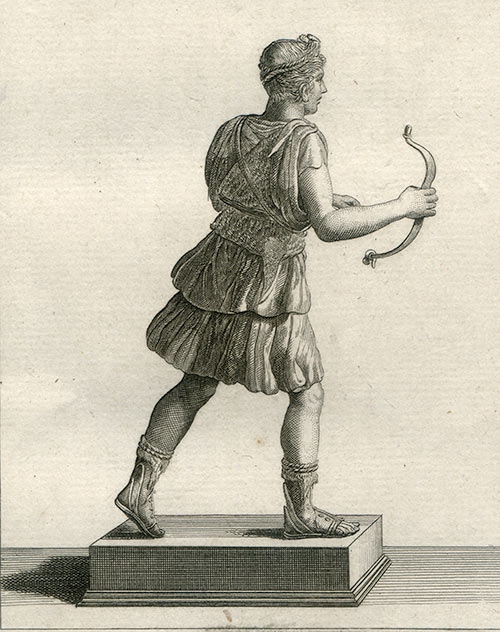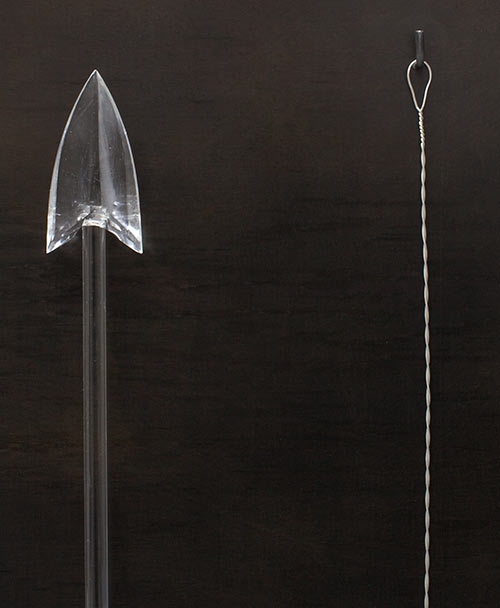My mind would be content to hear what fate comes towards to me,
since the arrow seen in advance arrives less suddenly.
Dante, Paradise, chant 17, 25-27
-
If Love's a Sweet Passion, why does it torment? (…)
Yet so pleasing the Pain, so soft is the Dart,
That at once it both wounds me, and tickles my Heart.
Henry Purcell, The Fairy Queen Act III
-

On an 18th century engraving representing an antique statue of a hunter with his bow—probably Eros or Cupid – one can notice a striking detail: there is no arrow or string in the image.
What can a hunter do, especially the god of Love, without his projectiles? His equipment is here restored, his string and an arrow returned to him. The arrow is made of glass, as it cannot be used twice, and the string is pure silver wire, the most conductive metal in the world.
 Spun glass and cut-glass, silver braided wire, engraving on paper (18th century), steel, magnet, plexiglas
Spun glass and cut-glass, silver braided wire, engraving on paper (18th century), steel, magnet, plexiglas
30 x 101 x 8 cm
Mon désir serait satisfait d'apprendre quel est le destin qui m'attend:
flèche prévue frappe avec moins de force.
Dante, Paradis, chant 17, 25-27
-
Si l'amour est une douce passion, pourquoi tourmente-il ? (…)
La douleur est si agréable, et la flèche si douce,
Qu'elle me blesse, autant qu'elle réjouit mon cœur.
Henry Purcell, The Fairy Queen Act III
-

Une gravure du XVIIIè siècle figure une statue antique de chasseur —probablement Eros ou Cupidon, tenant son arc. Une omission est frappante: ni flèche ni corde ne font partie de l’image.
Que peut faire un chasseur, a fortiori le dieu de l’Amour, sans ses projectiles ? Cela signifierait qu’il ne pourrait plus déclencher le désir en tirant ses flèches... j'ai voulu compléter l’attirail manquant en lui fournissant une corde et une flèche. La flèche est en verre: elle n’est utilisable qu’une seule fois. Elle est tirée avec une corde en fil d’argent, métal le plus conducteur au monde.

Verre filé et taillé, fil d’argent tressé, gravure sur papier (XVIIIè siècle), acier, aimant, plexiglas
30 x 101 x 8 cm








